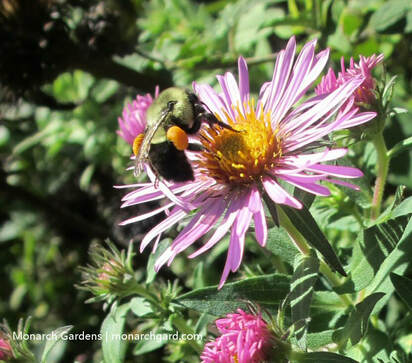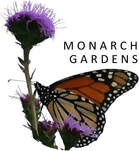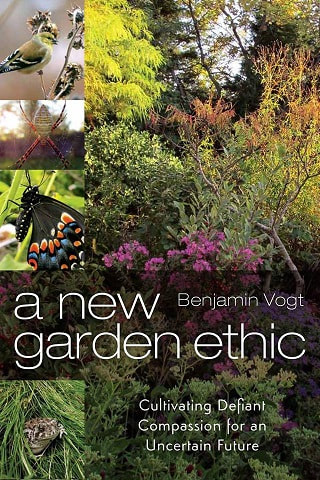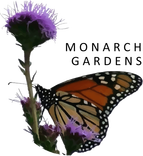But using exotic plants to extend the bloom season is a strategy rife with issues that got us into this whole climate change / mass extinction scenario in the first place. When I hear a designer promoting exotics as a way to help pollinators, I know they're missing information. Here are some issues that come up for me:
1) Exotic plants help both invasive insects and primarily generalist pollinators (native or not). Chances are invasive insect thugs evolved with the exotic plants we're using in our gardens, so all we're doing is helping them out, either with the plant being a host for their young or for the nectar and pollen they need. Exotic plants also appeal primarily to generalist adult native pollinators, like bumble bees or many butterflies. Often someone will say something like "I saw a bee on my snowdrops or hosta or russian sage" without knowing what the species is, and in turn what role that species has in the ecosystem.
3) Helping pollinators by extending the bloom season with exotic plants ignores the plant's critical role as a host for larvae. Exotic plants may help some generalist adult native insects adapt, for a time anyway, but they won't help plant-dependent species or the ecosystem adapt. Simply put, climate change is happening so fast now most life can't and won't adapt. We're looking at a 50% total planetary species loss by 2100. You can't assume exotic plants are going to make much of a difference, especially when they aren't supporting young. Native plants support many times the insect biomass as compared to exotics. But should you be using native plants from an ecoregion south or downhill of you? I don't know. Again, the climate is altering so quickly and unpredictably that the help you may be doing could be short-lived at best.
4) Predicting the future isn't easy, and while we can make some logical guesses, how do we know if / when an exotic plant will become a problem plant? Especially in the face of really unpredictable climate and weather fluctuations? Isn't assuming we know better what got us into this mess in the first place?
I think when we hear that any flowering plant can help pollinators what we're really hearing is a defense of human supremacism; the idea that in whatever garden choices we make will do SOME good on SOME level, so let's pick what's pretty or functional to us as the primary or sole motivation. We are so far beyond this limited viewpoint which eschews empathy, compassion, and scientific knowledge of how the world works. If we keep defending our plant choices in distorted ways, we're simply continuing to feed the system and conditions that have fostered the sixth mass extinction. Our privilege doesn't give us the right to use any plant we want -- it gives us the wisdom and responsibility to see beyond ourselves into the ecosystem and the thousands of lives interacting with our homes (and us) every day. The real world is not a human one, culturally or biologically, and until we start to see nature and landscapes as something part of us -- not just a tool or an artscape -- gardens will fail to wake us to a more profound community of nature, to compassion, and to empowerment.



 RSS Feed
RSS Feed

